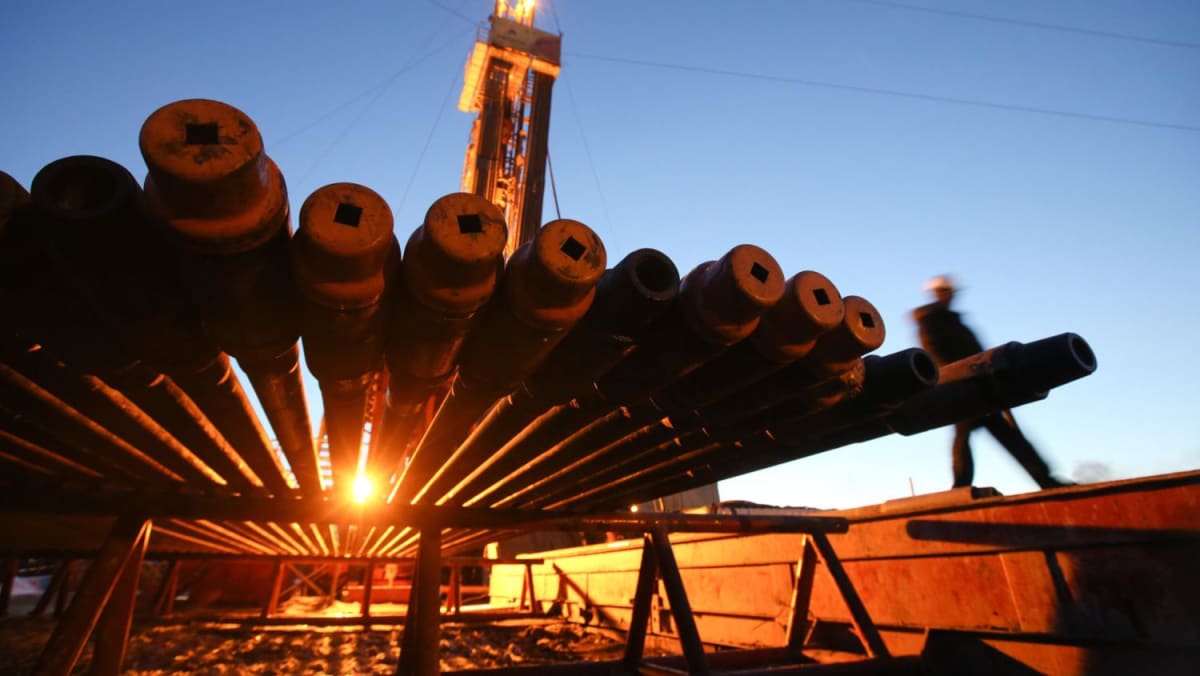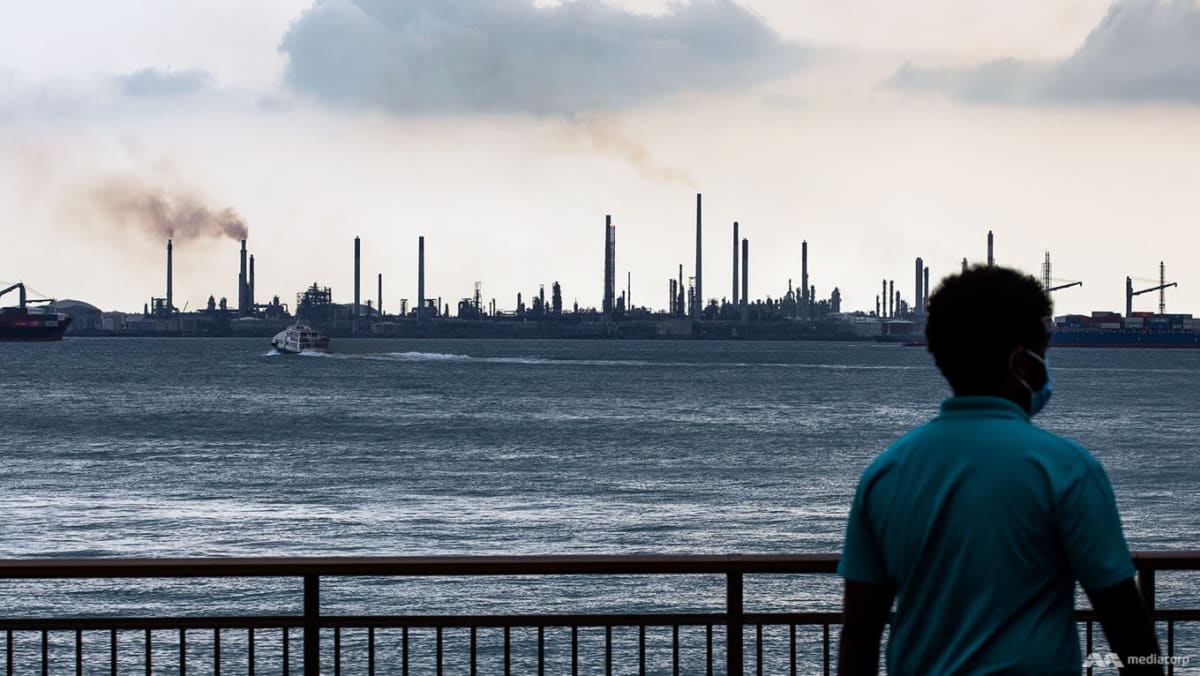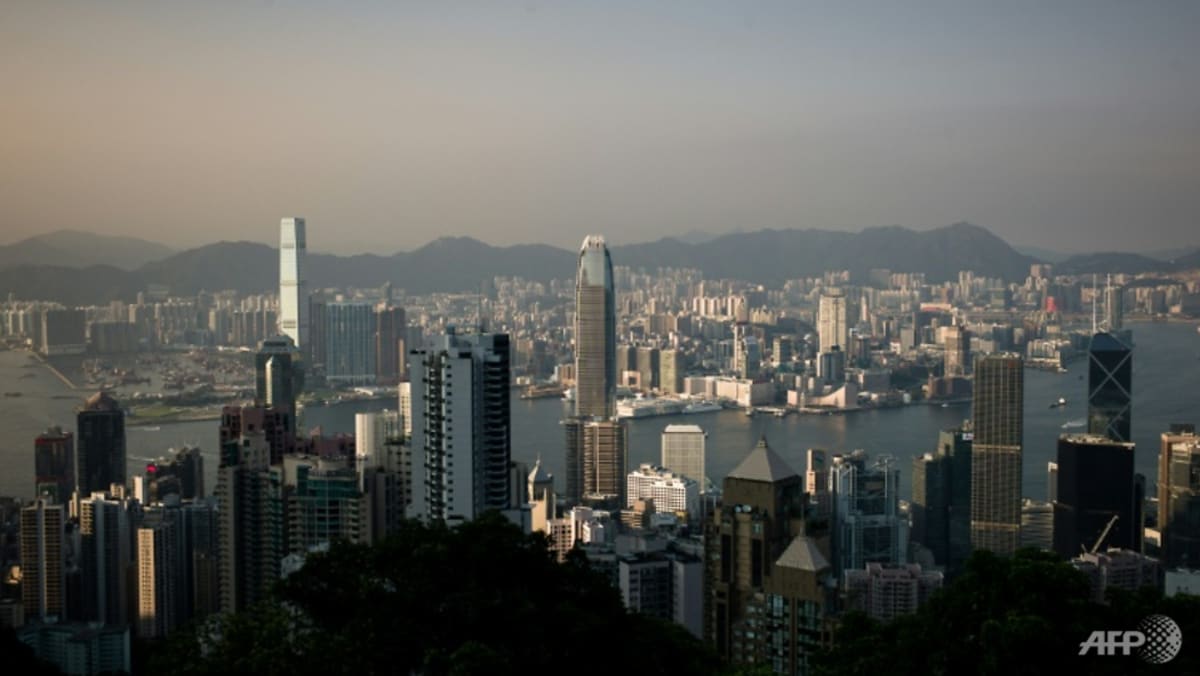Those working in finance help cement Hong Kong’s position as one of the world’s top five largest financial centres and a vibrant crossroads of East and West. So do teachers, artists, restaurateurs, academics and all the others who are now reconsidering their futures here too.
Richard Heyes is among the doubters. A British national, Heyes has lived here for a decade, staying on even after he retired in 2020 from Citigroup, where he ran the Asia-Pacific equities business. But given all the uncertainties, he says he might stay in Europe for a prolonged time after traveling back to London to see his children.
“I can only see the opportunities diminishing for the expat community,’’ Heyes, 58, said.
Suzi Duncan has made her decision: Go. A British national who works at a major law firm, she recently left for Dubai after three years here. The final straw: Her fear that authorities would separate her from her sixth-month-old child if she were to test positive for COVID-19.
“I was terrified,” Duncan, 34, said. Her blunt characterisation of the current state of affairs: “No light at the end of the tunnel.”
John Wood has quit Hong Kong too. A private-equity investor and self-described “road warrior,” he returned to the US in January after seven years in Hong Kong. He and his family ended up in government-mandated quarantine for 21 days after they returned from a vacation last year. That was enough.
“I told myself, it’s the first time - and the last time,” Wood, 57, said.
On Hollywood Road, home to trendy bars, art galleries and antique shops, Herve Pennequin, once named the world’s third best sommelier, is contemplating his future too. Pennequin thought he got a good deal on rent when he opened Bacchus Wine & Restaurant in February 2021. Business is now 50 per cent below his projections. Worse, he’s been separated from his 18-month-old son and family who live in the Philippines.
The 55-year-old, wearing a light-green Brooks Brothers jacket, a Hugo Boss polo shirt, Burberry glasses and a Rolex Daytona, said the city now lives under the “fear” officials have imposed.
“If China keeps on pressuring Hong Kong to match what China has been doing, it’s difficult for the city to remain vibrant,” he said, whistling to suggest game over. “In the past six months, we’re dragged into it.”
About 5,000 restaurants, or almost one third of Hong Kong’s eateries, are considering shutting down for months in order to cut costs, according to the Hong Kong Federation of Restaurants and Related Trades. More than 1,200 restaurants have already suspended business and 300 have permanently closed.
The government has proposed a relief package, but that is viewed as too little and too late.
International financiers are reluctant to talk openly about their plans. Most are wary of angering the Beijing government, which holds the keys to lucrative business in the US$54 trillion mainland market.
Privately, however, many say their frustrations are growing. Rising numbers of employees are asking to be relocated. Bosses say they’re trying to review the requests on a case-by-case basis to avoid drawing attention. Senior moves are particularly sensitive.
No one wants to be perceived as turning their backs on China, which has demanded that Hong Kong hew to the mainland’s commands to stamp out the outbreak at any cost. At a recent town-hall for Asian employees, Societe Generale SA chief executive officer Frederic Oudea hinted at the difficult landscape banks have to navigate.
Signalling a shift out of Hong Kong could be seen as an “aggressive step towards China,” which “may not help us to develop in the long run as we want in China,” he told staff in a wide ranging discussion in comments obtained by Bloomberg News.
The French bank declined to comment further.
Surveys by local business groups point to the road ahead. A poll last year by the Asia Securities Industry & Financial Markets Association found that almost half of all major international banks and asset management firms here were considering moving at least some employees or job functions out of Hong Kong.
The European Chamber of Commerce in Hong Kong similarly warned that the city could face a major exodus. Many working in finance are waiting for annual bonuses to be paid or, for those with children, for school to let out before leaving, but with schools now letting out early the exodus is gathering pace.
At some banks, change is afoot. Citigroup is quietly moving a half a dozen equities bankers to Singapore and other markets.
A similar number of managing directors at JPMorgan Chase has left over the past six months, some moving back to Europe for bigger jobs.
Mehdee Reza, Morgan Stanley’s head of Asia institutional equity distribution, resigned in January and plans to return to Europe to rejoin his family after almost three decades in the city.
At HSBC, James Grafton, co-head of Asia equity execution, moved to London recently to take on a global role. His spot in Hong Kong was filled by Oliver Kadhim, who relocated from London.
A big shift is underway at Wells Fargo, which has reduced its workforce in Hong Kong to less than 500 from almost 800 in 2019, while building up in Singapore, Hong Kong’s regional rival, according to a person familiar with the matter, who spoke on the condition of anonymity given the sensitive nature of the matter.
Wells Fargo said it remains committed to Hong Kong.
“Hong Kong continues to be an important market and location to us,” the bank said in a statement. “Suggestions we are moving our focus away from Hong Kong do not accurately reflect our commitment to this market.”
Citigroup, too, said Hong Kong remains a vital outpost. Overall, the bank has added more than 300 people in Hong Kong over the past 12 months, a third of whom were recruited or transferred from overseas, Citigroup spokesman James Griffiths said.
“The bank was being as flexible as possible to support staff who wanted to relocate due to family reasons or for client coverage,” Griffiths said last month. He declined to comment on specific personnel moves.
London-based HSBC, whose history is deeply entwined with colonial Hong Kong but today is looking to mainland China for growth, has been eager to demonstrate its commitment.
Last year it announced the relocation of one of its global co-heads of investment bank, as well as its heads of commercial banking and wealth, from London.
Spokespeople for Citigroup, Morgan Stanley, HSBC and JPMorgan all declined to comment for this story.
But as Hong Kong marks a quarter century under Chinese sovereignty – the halfway point in China’s halting promises to maintain the semi-autonomous city’s way of life for 50 years – the landscape keeps shifting. The rise of mainland Chinese financiers, as well as the relentless pull of Shanghai and Beijing, are challenging Hong Kong’s image as the ultimate crossroads of East and West. As its expats depart, Hong Kong begins to resemble what some always feared it might one day become: Another city in China.
Allan Zeman, who owns large parts of Hong Kong’s fabled Lan Kwai Fong nightlife district, is deeply worried about the city he has called home since the 1970s.
"The international reputation of HK is now very damaged, and I worry that ‘One Country Two Systems’ as we know it will disappear,’’ he wrote in a letter to Chief Executive Carrie Lam, referring to the framework set up when the city was handed back to China in 1997. "A lot of talent has already left. I don’t think this is what President Xi wants as China needs an international HK and not just another city of 7M people."
Adblock test (Why?)
https://news.google.com/__i/rss/rd/articles/CBMiZmh0dHBzOi8vd3d3LmNoYW5uZWxuZXdzYXNpYS5jb20vYXNpYS9iYW5rZXJzLWFiYW5kb25pbmctaG9uZy1rb25nLWJlaWppbmctY292aWQtMTktcmVtYWtlLWNpdHktMjU0MzU1NtIBAA?oc=5
2022-03-07 02:17:24Z
1318338469


/cloudfront-us-east-2.images.arcpublishing.com/reuters/YLTHPYGSYBOATO7ERY6LIUGEQY.jpg)

